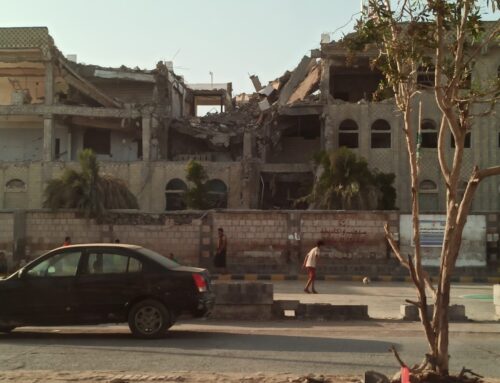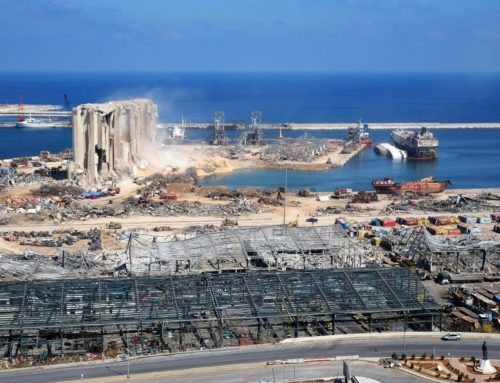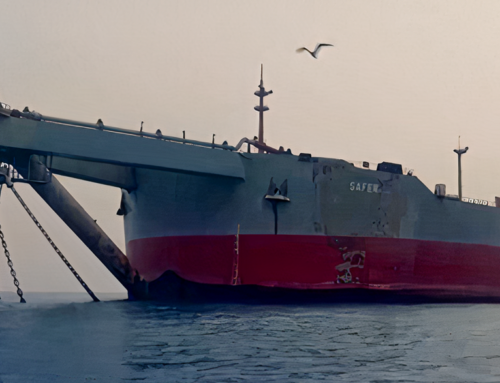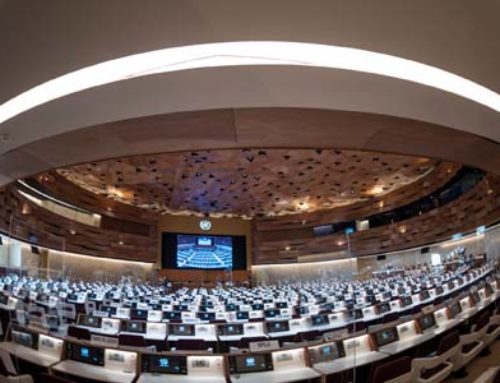October 13, 2020
To:
- The Members of the Working Group on Arbitrary Detention
- Professor Nilz Melzer, Special Rapporteur on Torture, and Other Cruel, Inhuman or Degrading Treatment or Punishment
- Irene Khan, Special Rapporteur on the Promotion and Protection of the Right to Freedom of Opinion and Expression
- Agnès Callamard, Special Rapporteur on Extrajudicial, Summary or Arbitrary Executions
Dear Members of the Arbitrary Detention Working Group, and Special Rapporteurs Callamard, Khan and Melzer,
We are writing to bring your attention detailed information regarding the arbitrary detention, disappearance and abuse of ten journalists in Yemen’s capital, Sana’a, by Ansar Allah, also known as the Houthi armed group. We welcomed the High Commissioner of Human Rights’ statement of August 6, 2020 highlighting violations against journalists in Yemen, and request that you use the information in the submission below to raise these cases with Ansar Allah authorities, if you have not already done so, and to continue to advocate both privately and publicly for their release, as well as for the investigation.
Ansar Allah forces forcibly disappeared or arbitrarily and abusively detained the journalists at various points since June 2015. Ansar Allah officials also appear to have subjected some of the men to torture. In April 2020, a court in Sana’a sentenced four of the journalists to death. Many of the men have suffered multiple health complications as a result of physical abuse and poor conditions of detention.
Consent
Nine of the journalists discussed in this submission remain detained. One is disappeared. Mwatana has put forward this submission after discussing and sharing the intended communication with the journalists’ appointed lawyer, Abdulmajeed Sabra, and being granted his informed consent to proceed with the submission. Mwatana discussed with Sabra, and obtained consent for, possible outcomes including the journalists’ names appearing in a public report to the Human Rights Council, and their names being disclosed to relevant authorities. Sabra was granted authority by each journalist or their relatives to engage on their behalf in questions related to advocacy and legal action on their case. Mwatana also received informed consent from the journalists’ families to publish on their case for previous publications. The journalists’ names and case have been highly publicized in the media over the last five years, and in connection with international advocacy campaigns by NGOs like Amnesty International, Pen International and the Committee to Protect Journalists.
Source of Our Information
The information Mwatana has collected and provided below indicates that Ansar Allah violated international humanitarian law and committed human rights abuses. The information is based on interviews with the journalists and their relatives, including those who visited their family members in detention, between 2015 and 2020, and updated through periodic communications between lawyers in Mwatana’s Legal Support Unit and the men’s family members. Mwatana’s Legal Support Unit has been working on the cases since 2015, including by advocating for the men’s release with various Sana’a-based officials like the Ansar Allah-controlled Ministry of Human Rights, Supreme Political Council, Public Prosecutor and Prime Minister.
Request to Raise Cases with Responsible Ansar Allah Officials
We request that you use the information in this communication to raise questions with Ansar Allah authorities in Sana’a responsible for the journalists’ arbitrary and abusive detention or disappearance including: (i) the Ansar Allah-appointed Supreme Political Council president Mahdi Al Mashat, (ii) Specialized Criminal Prosecution head Khaled Saleh Al Mawery and his deputy Ahmed Al Geez, (iii) Security and Intelligence Agency head Abdulhakim Al Khaiwani, (iv) Supreme Revolutionary Committee Chairman Mohammed Ali Al Houthi; (v) Specialized Criminal Court Judge Mohammed Mofleh, who issued the recent verdict against nine of the journalists discussed in this submission, including the death sentences, (vi) Ansar Allah leader Abdulmalik Al Houthi, and (vii) the Public Prosecutor, Judge Nabil Al Azzani.
Request for Public Statement
We also request that you use the information in this communication as the basis for a public statement on these cases, including a call for Ansar Allah to vacate the death sentences issued against four of the journalists, to provide information on the whereabouts of the one journalist who remains missing, and to release, without precondition or delay, all of the journalists.
Overview of Submission
Section I of this submission includes information regarding the arrest, arbitrary detention, enforced disappearance, mistreatment and sentences issued against the Yemeni journalists by Ansar Allah. Section II includes identifying information for the ten concerned individuals, including relevant identification documents where available. Section III outlines the legal frameworks governing their treatment. Section IV concludes with a series of questions for Ansar Allah. These questions are important for the armed group to answer to better enable an independent assessment of their actions’ compliance with international law.
Section I: Information Regarding the Arrest, Arbitrary Detention, Enforced Disappearance, Mistreatment and Sentences Issued Against Ten Journalists by Ansar Allah
After the Ansar Allah takeover of Sana’a in 2014, the group quickly consolidated control of state institutions, including security and military forces. At the time of the journalists’ arrest and disappearance, security forces fell under the authority of Ansar Allah and their ally, former president Ali Abdullah Saleh, who had been deposed following the popular protests that began in Yemen in 2011. After taking control of the capital, Ansar Allah forces, along with their allies, quickly began harassing, arresting and disappearing journalists, activists and other perceived opponents. In October 2015, Mwatana reported on a number of cases where Ansar Allah targeted members of the Yemeni media community, available at https://mwatana.org/en/houthi-dark-history/.
Waheed Al-Sofi
On April 6, 2015, Waheed Al-Sofi, a Yemeni journalist, was taken by armed men in civilian clothes from the Tahrir post office in the capital, Sana’a, a witness told Mwatana. Al-Sofi was the editor-in-chief of the Al-Arabiya newspaper and director of the paper’s online website. The witness said he saw the gunmen dragging Al-Sofi from the post office, and then driving him away in a white Toyota without a license plate. Al-Sofi’s family contacted local police stations, hospitals and other local officials, but did not receive any answers as to his whereabouts. The relative also said that in 2017, the family heard from a friend that Al-Sofi was being held at a detention site that had recently been hit by an airstrike. Members of the family went to the detention site, controlled by Ansar Allah, and asked after Al-Sofi. Guards said that all journalists had been transferred to the Political Security Agency, but refused to tell them if Al-Sofi had been held there or had been wounded in the airstrike. Al-Sofi has been disappeared since 2015. His lawyer said, despite efforts, neither he nor Al-Sofi’s family had information regarding his whereabouts.
Abdul Khaleq Imran, Hisham Tarmom, Harith Humaid, Akram Al-Walidi, Essam Balghaith, Hisham Al-Yousofi, Haitham Al-Shehab, Hassan Annab and Tawfiq Al-Mansouri
Arrest
On June 9, 2015, at about 04:00 am, armed men working for Ansar Allah arrested nine journalists, including Abdul Khaleq Imran, Hisham Tarmom, Harith Humaid, Akram Al-Walidi, Essam Balghaith, Hisham Al-Yousofi, Haitham Al-Shehab, Hassan Annab and Tawfiq Al-Mansouri (full identifying details provided below).
The journalists arrested on June 9, 2015 were meeting in the Palace of Dreams hotel, located on Sixtieth street, in the western part of Yemen’s capital, Sana’a. They had been using a room in the hotel to work, due to the availability of electricity and internet access. The journalist’s families later told Mwatana that the group that arrested the journalists were dressed in a mixture of civilian, military and security force clothing, and some had slogans on their weapons associated with Ansar Allah.
Following the journalists’ detention, various Ansar Allah officials claimed to Mwatana lawyers in phone calls and meetings that the men supported the Saudi-led coalition and monitored and sent coordinates of sites to the coalition to target in the aerial campaign. The journalists worked for a variety of news outlets, some of which oppose Ansar Allah, and some aligned to the Islah political party.
Places and Conditions of Detention
The Ansar Allah forces that arrested the journalists took them to local police stations, where the men were held for about two weeks. According to the journalist’s families, the men later said they were not questioned during this time. Their relatives attempted to visit them there, but the police did not allow them to do so, with the exception of one of the men’s father, who visited briefly and saw his son. After about two weeks, the journalists disappeared. Their families continued to look for them, including asking local security officials about their status and location. For about a month, Ansar Allah did not inform the families where the men were being held, nor allow visits or any form of communication.
According to the families of the journalists, after about a month, in July 2015, someone told them that the journalists were being held in Sana’a’s Criminal Investigation Department (CID) building, on Al Adl street. CID officials had previously denied holding the men. Once the families discovered the men were held there, the families began asking officials at the CID to release the men. While detained at the CID, guards beat and tortured Imran, Al-Mansouri and Tarmom, according to their families. The men later told their relatives that guards in the prison suspended them from the ceiling, electrically shocked them, beat them with wooden boards and chains, kicked and slapped them, prevented them from urinating and verbally abused and humiliated them. Imran, Al-Mansouri and Tarmom also told a Mwatana lawyer they were tortured in this way. They said the people torturing them would ask them questions or accuse them of things, like assisting the coalition. If they denied this, the men would hit them until they confessed, they reported.
The CID transferred all journalists to Al-Thourah Pretrial Detention Facility, in Sana’a on Al Hasaba street, without informing the families. The journalists were disappeared. When a Mwatana lawyer and the families inquired at the facility, Al-Thourah officials denied holding the men.
After significant follow-up, a Mwatana lawyer was finally able to meet with Abdul Khaleq Imran, Akram Al-Walidi, Hisham Tarmom, Haitham Al-Shehab and Tawfiq Al-Mansouri, and guards at Al-Thourah eventually told the families the men were being detained at the facility. Guards in Al-Thourah mistreated Imran, al-Walidi and Al-Mansouri, according to the Mwatana lawyer, who visited them two days after, and their families, who were finally allowed to visit them for the first time in late 2015, several months after their original detention. The family of journalist Essam Balghaith were not able to visit, as they were outside Sanaa at the time.
Imran, al-Walidi and Al-Mansouri told a Mwatana lawyer that the guards in Al-Thourah had beaten them with sticks, kicked and slapped them, prevented them from urinating, and held them in overcrowded dark cells (3×4 meters, holding about thirty people, and without exposure to sunlight). The men appeared very thin, pale and weak, telling Mwatana, “Our hands were tied behind our backs, and then we were hung from the roof for a whole day. The place here is cold and we see the sun only twice every six months.”
The men remained in al-Thourah for about two more months, during which time they were allowed family visits.
In the beginning of 2016, the journalists were transferred to Habra pre-trial detention facility, also in Sana’a. About six months later, in May 2016, the journalists began a hunger strike in the Habra facility, which lasted two weeks, to protest the poor conditions in the facility. The men’s physical and mental health deteriorated.
After the hunger strike, the journalists were again transferred, this time to the Political Security Agency in Sana’a where they remain. After taking control of Sana’a, Ansar Allah continued using the Political Security Agency and National Security Agency buildings as detention sites, both notorious intelligence agencies before the current conflict. On August 31, 2019, Ansar Allah issued a decision merging the National Security Agency and Political Security Agency into the Security and Intelligence Agency. The Political Security Agency repeatedly refused to allow the journalists’ relatives or Mwatana’s lawyer to visit, without providing a justification.
Mwatana reported on this case in a joint report on repression of journalists in Yemen in June 2017, available at http://mwatana.org/wp-content/uploads/2017/10/Press-report-En.pdf.
Legal Proceedings
The families have repeatedly asked that Ansar Allah officials release the journalists. Mwatana has also filed memorandums (examples upon request) and other requests for their release to the general public prosecutor in Sana’a, the Ansar Allah detainee committee, the Political Security Agency, and with other high-level Ansar Allah officials. Ansar Allah officials have promised the families to release the men on multiple occasions. In January 2016, following petitions Mwatana put forward on behalf of the journalists, the Ansar Allah Legal Commission, which is under the office of Abdulmalik Al Houthi, issued an order (available upon request) for the release of the journalists. The order was not implemented. A few days after it was issued, family members told Mwatana that Imran, Al-Waleedi, and Shehab and Al-Mansouri were beaten and denied health care in Al-Thourah. A lawyer with Mwatana also met with Imran, Mansoori and Al-Waleedi at Al Thourah soon after. The three men showed the lawyer bruises and other visible signs of beating on their knees, face and back. They said this was not the first time they had been beaten.
The Political Security Agency eventually transferred the men’s case files to the Specialized Criminal Court’s prosecution wing for investigation in mid-2017, a court established to try state security crimes. The Special Criminal Prosecution Department formed an investigation committee. Some members of the department refused to proceed with the investigation, returning the case files due to insufficient evidence for indictment. Political Security again sent the files to the Specialized Criminal Court prosecutor in 2019.
In December 2019, four and half years after their initial arrest, the Specialized Criminal Court in Sana’a, under Ansar Allah authority, held its first trial session against the journalists. The journalist’s lawyer was not informed of the session. The second court session was held on January 6, 2020. While the lawyer was informed, the journalists were not brought to attend the court session. The third court hearing was in late January 2020, which the journalists and their lawyer attended. On April 11, 2020, the Specialized Criminal Court sentenced four of the men— Abdul Khaleq Imran, Harith Humaid, Akram Al-Walidi, and Tawfiq Al-Mansouri—to death. The Court sentenced the other journalists to imprisonment, but decided time had already been served and ordered they be placed under police surveillance for three years. They remain detained. An additional journalist was also convicted during the trial, but has since been released. The journalists’ lawyer was not informed of the date and time of the session. Mwatana reported on the convictions in April 2020, available at https://mwatana.org/en/release-them/.
Additional Documents:
Mwatana has a range of additional documents related to the organization’s follow-up with relevant Ansar Allah officials on the journalists since 2015, including:
- Letter from Mwatana to the public prosecution office of the Criminal Investigation Department, which the office noted on the letter was to be forwarded to the Ansar Allah Legal Commission. Delivered to him in December 2015.
- Letter from Mwatana to Ahmed Ghawth Al Deen, then-member of the Ansar Allah Legal Commission, requesting the immediate release of the journalists or the transfer of their files to the public prosecution, as required by law. Delivered in January 2016.
- Memorandum from the Ansar Allah Legal Commission to the Under-Secretary of the Criminal Investigation Department of Amanat Al-Asimah, following a visit to Al Thourah, stating, by name, that the journalists included in this submission (with the exception of Waheed Al-Sofi) be released. Stamped and signed by then- Legal Commission head Ahmed Qassim Al Daylami on January 16, 2016.
- Letter from Mwatana to Major General Jalal Al Rewishan, then-Ansar Allah Minister of Interior, requesting the journalists be released, noting that an Ansar Allah Legal Commission report had recommended the journalists’ release, and informing the Ministry that four of the journalists had been beaten at Al Thourah. Delivered to the Ministry in February 2016.
- Letter from Mwatana to Mohammed Ali Al Houthi, then-Chairman of the Ansar Allah Supreme Revolutionary Committee, requesting the immediate release of the journalists or the transfer of their files to the public prosecution, as required by law. Delivered to the Committee in April 2016.
- Letter from Mwatana to then-General Prosecutor Abdulaziz Al Baghdady, requesting the urgent release of the journalists, and to reveal their whereabouts. Delivered to him on May 18th, 2016.
- Letter from Mwatana to Abdul-Kareem Amiruddin Al-Houthi, head of the Ansar Allah executive office, requesting the immediate release of the journalists. Delivered to him on December 28, 2016.
- Letter from Mwatana to Judge Majid Alderbabi, the Sana’a based public prosecutor, stating that Mwatana had received complaints from the journalists’ families that their files had been transferred to the Specialized Criminal Court, as opposed to the regular court system, and requesting their immediate release. Delivered in January 8, 2018.
We have not included these documents in this submission, given space constraints, but are happy to provide copies of the Arabic-original documents, as well as informal translations, upon request.
Health Situation:
Nine of the journalists discussed in this submission have had illnesses and medical conditions caused or aggravated by their detention conditions or treatment. The journalists have developed skin disease and joint pain due to lack of exposure to the sun and inability to exercise or move, and after spending long periods in tight, cramped spaces. Some also suffer from chronic and other diseases, and abdominal and intestinal pain due to unhygienic food. Some are severely malnourished. As a result of mistreatment, including beatings, Imran suffered spinal injuries and vomited blood. Humaid has kidney and vision problems, but Ansar Allah refused him treatment during his detention for the vision loss. Al-Mansouri, who was beaten and tortured in CID, Al-Thourah, Habra and the Political Security Agency, has swelling in his prostrate. Al-Shehab and Al-Yousofi have arthritis. Al-Walidi, who was beaten in al-Thourah, suffers a fistula and colorectal disease. Balghaith has low blood pressure and had typhoid fever while detained. The men have at times been denied medical treatment, including after mistreatment or torture by detention facility officials. One of the journalists told a Mwatana lawyer that some of the men had been given aspirin or diazepam painkillers to mitigate pain after mistreatment, rather than being taken to a hospital or allowed to see a doctor.
Mwatana has repeatedly called for the immediate and unconditional release of the journalists. Other civil society and human rights organizations have also documented and reported on the arbitrary detention and mistreatment of the journalists and called for their release. See, for example:
- Mwatana for Human Rights, Amnesty International, Gulf Centre for Human Rights, Human Rights Watch, Reporters Without Borders, Committee to Protect Journalists, Article 19, PEN International, Index on Censorship, NGOs demand release of journalists held by Huthi forces for two years, June 9, 2017, https://www.amnesty.org/download/Documents/MDE3164042017ENGLISH.pdf;
- Mwatana for Human Rights and Gulf Centre for Human Rights, Press in Yemen Faces Extinction, June 2017, http://mwatana.org/wp-content/uploads/2017/10/Press-report-En.pdf;
- Reporters Without Borders, Concern about health of journalists held by Houthis in Sana’a, 12 April 2017, https://rsf.org/en/news/concern-about-health-journalists-held-houthis-Sana’a;
- Human Rights Watch, Yemen: Abusive Detention Rife Under Houthis, November 17, 2016, https://www.hrw.org/news/2016/11/17/yemen-abusive-detention-rife-under-houthis;
- Mwatana for Human Rights, They Are Not Here: Incidents of Arbitrary Detention and Enforced Disappearance under the De Facto Authority of Houthi Armed Group in Yemen, May 2016, https://mwatana.org/en/they_are_not_here/.
Section III. Legal Framework and Concerns
It is increasingly recognized that non-state actors who exercise government-like functions and control over a territory are obliged to respect human rights norms when their conduct affects the human rights of individuals under their control. Ansar Allah has controlled large parts of Yemen, including the capital Sana’a, since September 2014, and exercised government-like functions, including by operating former government ministries, running and maintaining sole authority over detention facilities, conducting trials, and policing areas under their control. (See the September 3, 2019 report and conference paper of the Human Rights Council appointed Group of Eminent and International Regional experts, discussing the responsibility of Ansar Allah to respect human rights norms, available at: https://www.ohchr.org/EN/HRBodies/HRC/YemenGEE/Pages/Index.aspx).
As party to the ongoing conflict in Yemen, Ansar Allah also has obligations under international humanitarian law. Both international human rights law and international humanitarian law prohibit arbitrary detention, torture, and enforced disappearance. When committed in the context of an armed conflict, cruel treatment, torture, and humiliating or degrading treatment are war crimes. Parties are required to take steps to prevent disappearances, including through the registration of persons deprived of their liberty and taking all feasible measures to account for persons reported missing as a result of armed conflict and providing their family members with information they have on their fate. (See Common Article 3 to the Geneva Conventions; Additional Protocol II; the International Committee of the Red Cross’s Customary International Humanitarian Law Study, Rule 90, 98, 99, 117, 123, and the Rome Statute of the International Criminal Court).
The Yemeni constitution and other laws provide a number of legal protections to individuals accused of a crime. Article 47 of the constitution states that individuals shall only be held criminally liable for their own acts, and that individuals shall be assumed innocent until convicted by a court. Article 48 of the constitution prohibits arrest and detention other than pursuant to a judge or prosecutor’s order, which is further reaffirmed by the Criminal Procedure Law of 1994. Article 48(b) of the constitution prohibits torture and other inhumane treatment, and states that no person shall be detained in places other than those designated by law and governed by the law on prisons, which include the central and remand prisons. In addition, Yemen’s Press and Publications Law 25/1990 establishes that the authorities must respect media and journalistic freedom.
Section IV. Questions for Ansar Allah
- Please list the facilities and locations which Ansar Allah has used to hold each of the ten men since their initial arrest or disappearance in 2015. Please include which of the facilities fall under the Ministry of Interior’s control and clarify who runs any other facilities in which the journalists have been held, and to whom each facility’s director reports.
- What steps has Ansar Allah taken to account for Waheed Al-Sofi, who remains missing, including identifying which forces detained him in 2015, where he has been held, and to provide his family members with information on his fate? Please provide information on his location, health, and, if currently detained, the reasons for his continued detention.
- What steps have been taken by the Minister of Interior, and by any other officials under whose authority the journalists have been detained, to investigate allegations of torture or other mistreatment, appropriately punish individuals responsible and release individuals held arbitrarily? Please describe how many investigations have been undertaken, if any, and the results of these investigations, as well as if any of these investigations have led to disciplinary measures. Please provide specific information on the actions taken and the outcome.
- What are the reasons for the continued imprisonment of the four journalists whom a court in April 2020 sentenced to time-served?
- What steps, if any, is Ansar Allah taking to quash or commute the death sentences issued against four of the journalists in April 2020?
If you should receive any response from Ansar Allah during the course of your investigation into these matters, we kindly request that you make these responses public. If you have any questions or require any further information to assist with your inquiry, please do not hesitate to contact us.
Thank you for your consideration.
Radhya Al-Mutawakel
Chairperson
Mwatana for Human Rights
Sana’a, Yemen
Priyanka Motaparthy
Director, Project on Counterterrorism, Armed Conflict, and Human Rights
Human Rights Institute
Columbia Law School






